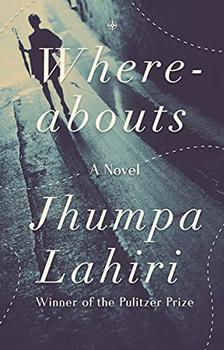Summary | Excerpt | Reviews | Beyond the book | Read-Alikes | Genres & Themes | Author Bio

A documentary filmmaker, Asya is interested in the "unremarkable grace" of daily life, "the slow and leisurely rot of a day." In a nameless city where she and most of her close friends are foreigners, Asya, her long-time partner Manu, and their best friend Ravi spend most of their time hanging out in the local park or each other's homes, visiting markets, or drinking in bars. The three are held together by an artistic and searching temperament, a desire to find ways of living that are beautiful, free, and pleasurable. There's something very comforting about inhabiting Asya's mind, like taking a deep breath. Operating at a slight remove, she peers into life as one might a rock pool, quietly examining the movements of tiny creatures in their natural habitats. As the three friends glide around the city, Savas's prose glides too, sanguine, thoughtful, and elegant.
The driving activities of The Anthropologists are Asya and Manu's hunt for an apartment and the documentary Asya is making about life in the park, a kind of cinéma vérité (see Beyond the Book) project where she interviews park-goers about their reasons for being there. But really, the plot is somewhat beside the point. The meat of the story is in the moments in between larger events, conversations had with family members, neighbors, and friends. A book where so little happens could easily become dull, but I found The Anthropologists curiously engaging. I think this is mainly thanks to author Aysegül Savas's style, which is clear and airy, and never belabors a point. The novel is cut up into short chapters whose titles roughly correlate to its themes — "Principles of Kinship," "Future Selves," "Ways to Live." The brevity of the chapters keeps the story moving along swiftly, despite the tranquility of its characters' lives. Another factor is Asya's perspicacity. Her analytical attention to the smallest interactions makes even mundane activities seem surprising, both familiar and strange, ripe with potential meaning.
One important theme is the sense of being a foreigner. As an immigrant to the city, Asya is fascinated by the people who naturally belong to it, and this contributes to her desire to study those around her. Though she, Manu, and Ravi mainly operate according to the rules of their own private world, Asya also fosters a desire for a sense of belonging to her chosen home. This desire keeps her tied to Lena, her only friend who is a lifelong resident of the city, and their relationship makes Asya contemplate the differences between being born in a place and choosing to be there. While Asya wants to naturalize, she also worries about becoming estranged from her own culture. This experience will be familiar to people who have moved abroad – the feeling of being pulled in two directions. Though Asya is very close to her grandmother and mother, she sometimes feels that they don't understand her drive for autonomy, which puts her at odds with the traditions she was brought up with. The passages dealing with these tensions are honest and poignant, but Asya's reflections on the complicated dynamics of choosing to live in a different culture than your family are delivered lightly, like passing clouds. Her sense of detachment, combined with warmth and curiosity, gives beauty to Savas's writing, her analytical observations tempered by a compassionate, humanistic tone.
This is not to say that The Anthropologists is completely free of difficult moments. Asya's relationship with her family matriarchs gives Savas space to explore the experience of watching the ones you love aging, which she expresses with a feeling of great pain and sympathy. The shifting dynamics between the three main characters also sometimes trouble the still waters of Asya's mind, threatening to upend the delicate ecosystem they have created for themselves. However, the overarching feature of The Anthropologists, which is what makes it a worthwhile read, is its wonderful sense of lightness. The book's title reflects Asya's attitude towards life. In response to her sensitivity to the strangeness of ordinary interactions, she learned to summon an imaginary anthropologist, "to narrate the simplest interactions when I tried to untangle the layers of an argument, when I edited footage, when I was dressing up for an event." This way of being allows her to make sense of the world around her, without becoming engulfed by it: "Because it often seemed to me that our life was unreal… I summoned the anthropologist to make it seem otherwise." She considers the people and places around her like rare, translucent objects, turning them this way and that to examine new sides and refractions, places where the light shines through. This is a good way to be, and I finished the book with a desire to pay more attention to the many facets of life I ordinarily take for granted, the small rituals that give it structure and meaning.
![]() This review
first ran in the July 17, 2024
issue of BookBrowse Recommends.
This review
first ran in the July 17, 2024
issue of BookBrowse Recommends.

If you liked The Anthropologists, try these:

by Jhumpa Lahiri
Published 2022
A marvelous new novel from the Pulitzer Prize winning author of The Lowland and Interpreter of Maladies--her first in nearly a decade.

by Sigrid Nunez
Published 2021
The New York Times-bestselling, National Book Award-winning author of The Friend brings her singular voice to a story about the meaning of life and death, and the value of companionship.
Your guide toexceptional books
BookBrowse seeks out and recommends the best in contemporary fiction and nonfiction—books that not only engage and entertain but also deepen our understanding of ourselves and the world around us.